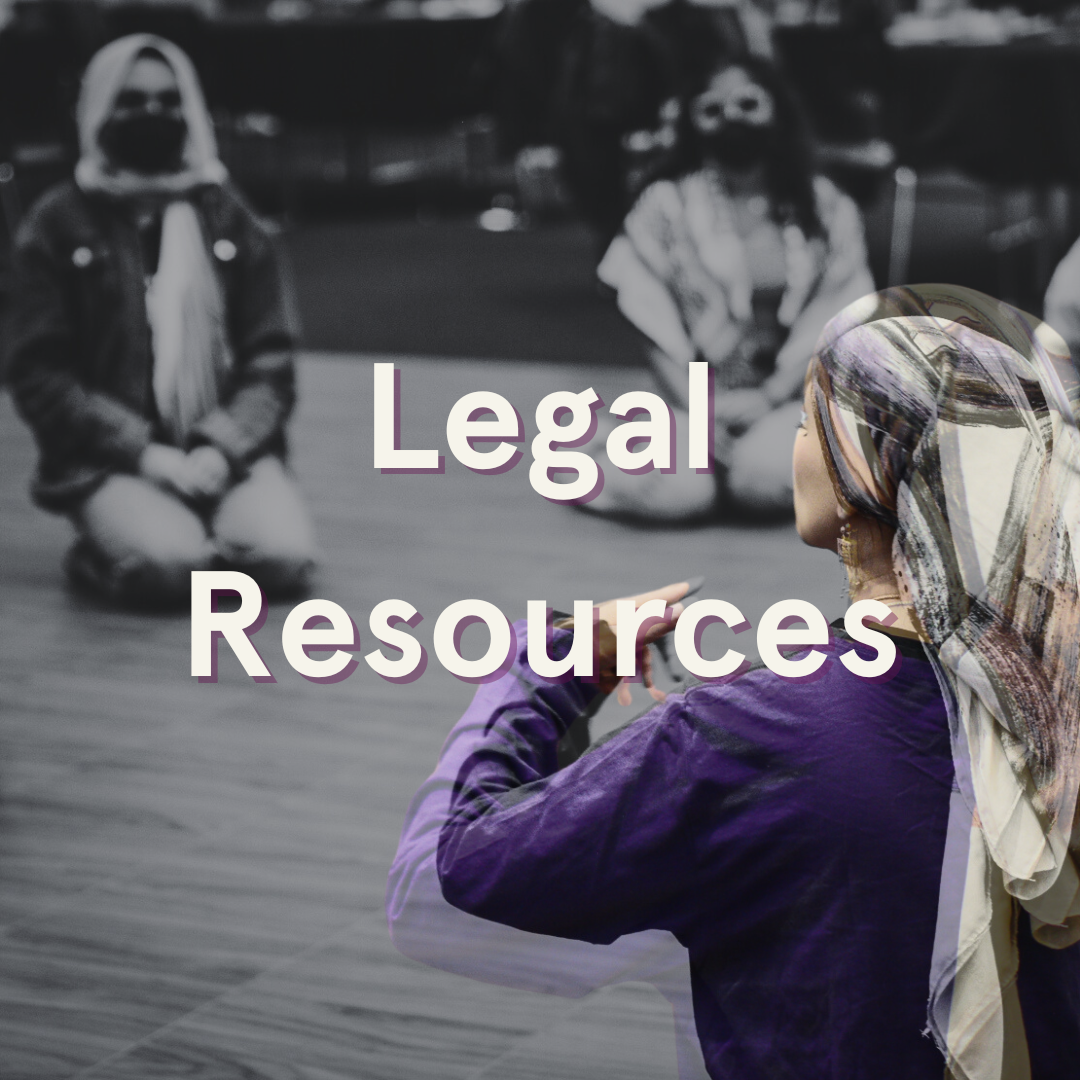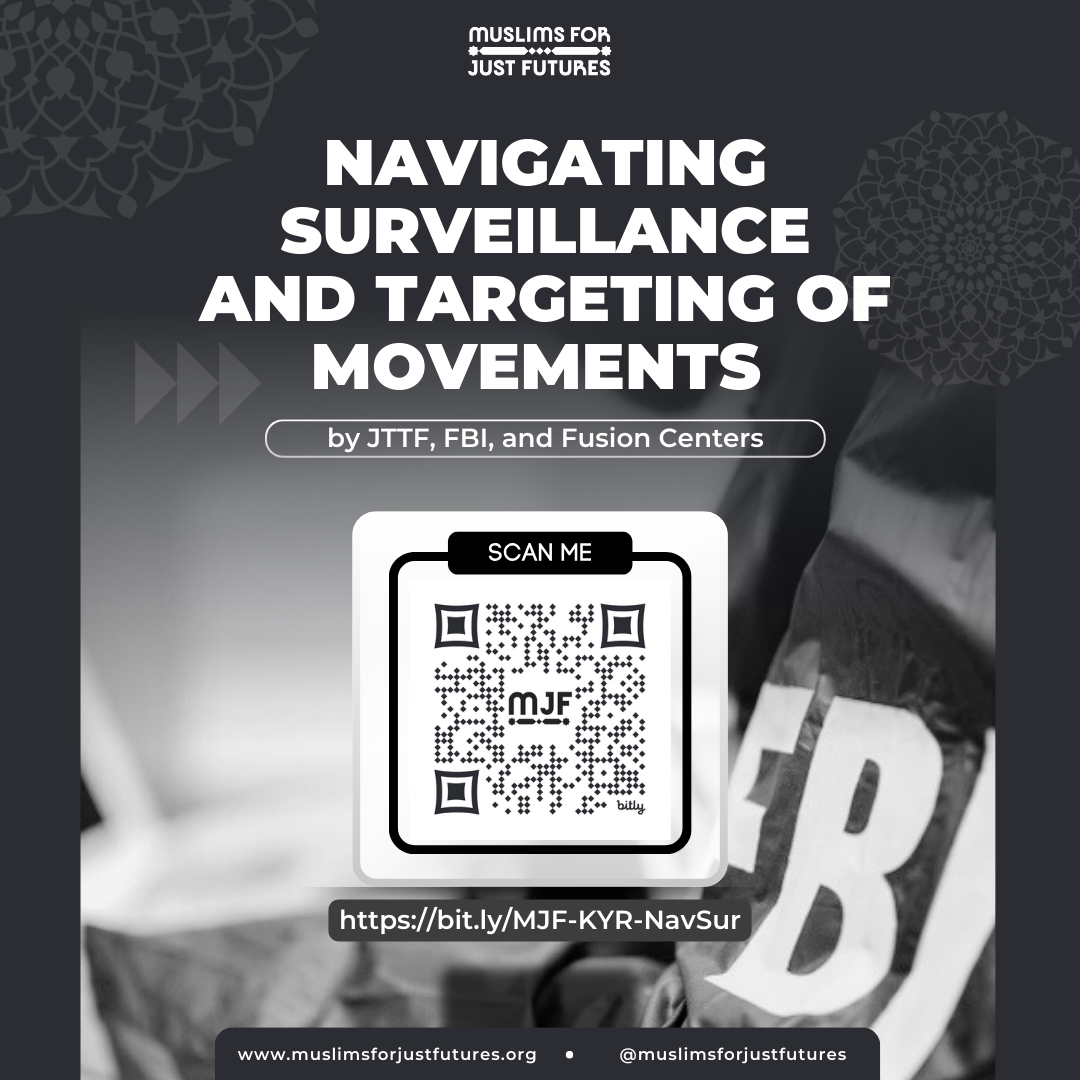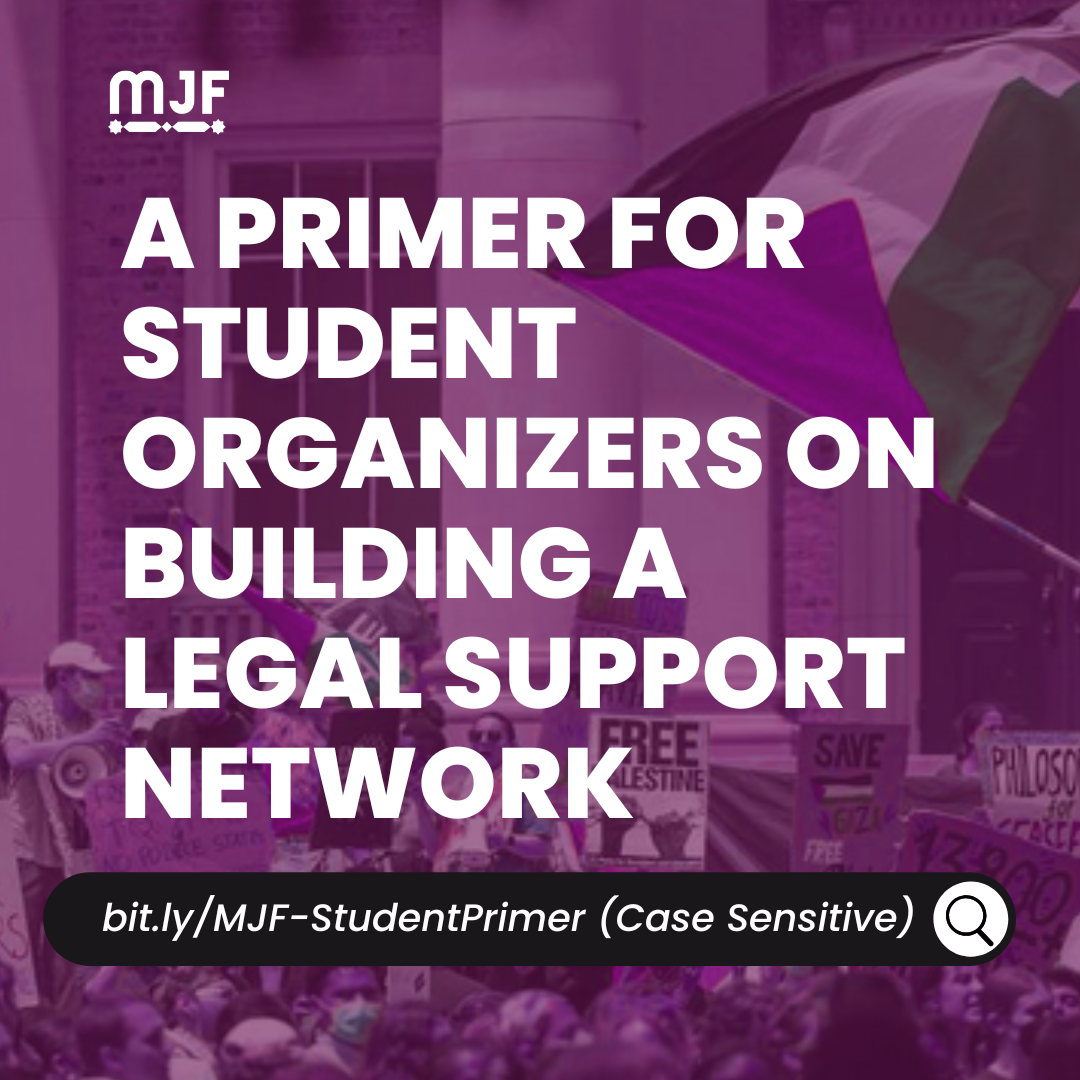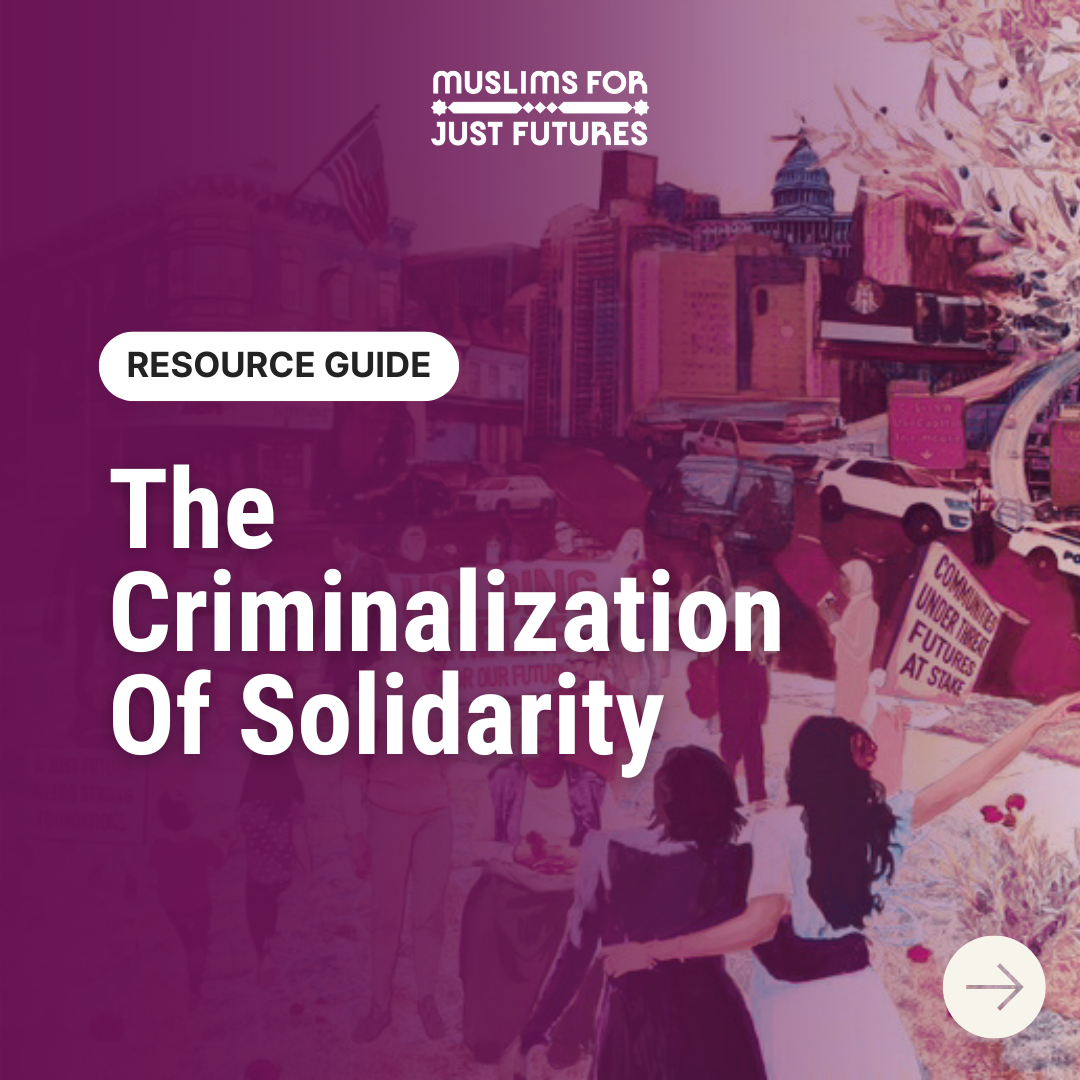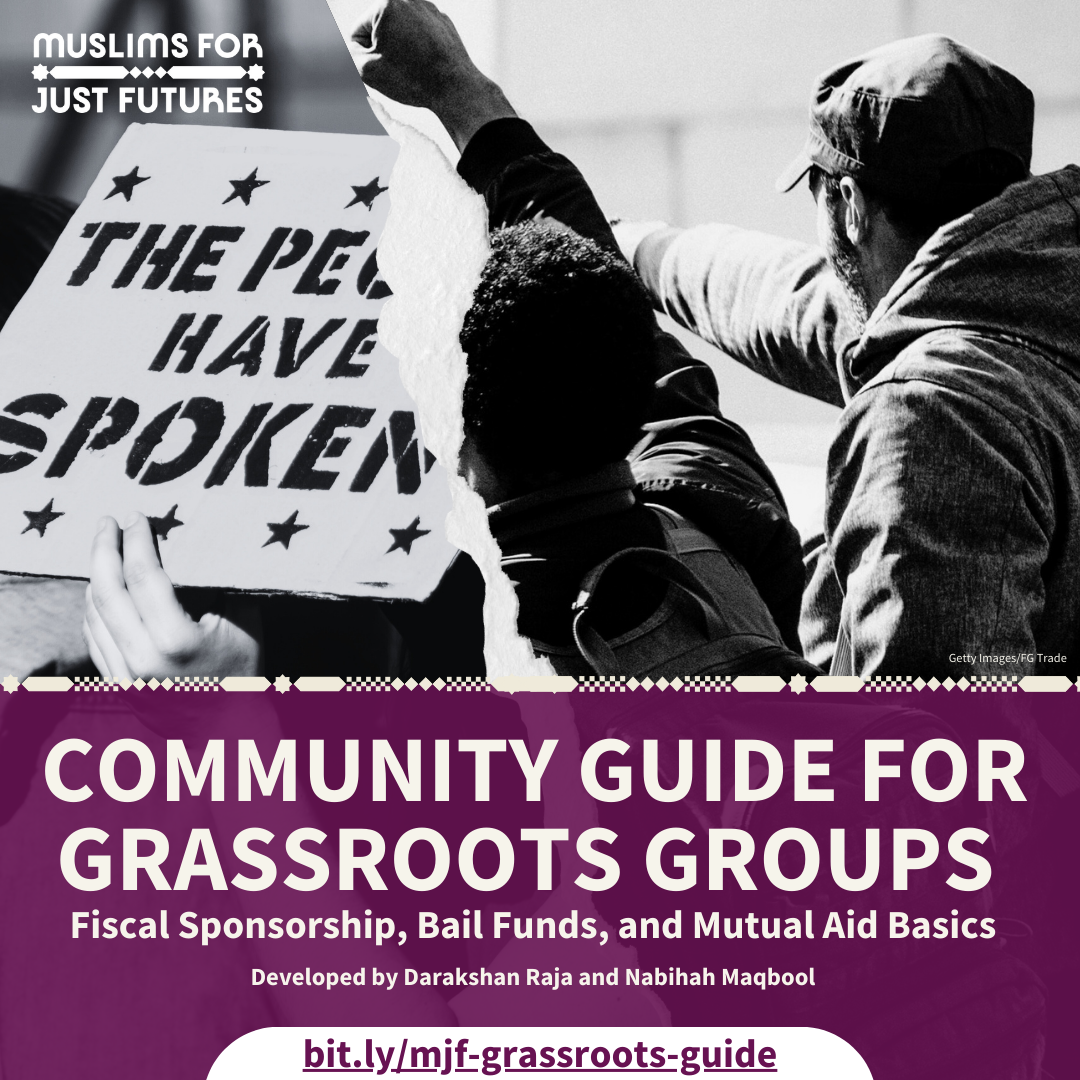This section is developed by MJF’s Just Futures Legal Network and includes Know Your Rights (KYR) resources. We will be updating these resources regularly. Please note these documents are not legal advice and do not replace consulting with an attorney. These resources include KYR resources on mutual aid/bail funds, protesting, federal prosecutions, and immigration. We encourage community members, organizers, and movements utilize these resources collaboratively as they build off each other. If you have any questions, please reach out here.
Navigating Surveillance and Targeting of Movements
Purpose: This document is designed to support movement groups in DC and Chicago to better understand the potential increase in monitoring and surveillance following recent events in Washington D.C. that have been labeled as “targeted violence.” It includes critical KYR resources and information. On Wednesday, May 21, two Israeli embassy staff members were shot and killed while leaving an event in DC. Federal government responses include statements from POTUS, the Attorney General, and the Progressive Caucus. The FBI, along with the Joint Terrorism Task Force and the DC Police Department, characterized the shooting as “targeted violence.” The FBI raided the shooter, Elias Rodriguez’s home in Chicago. Several movement organizations have put out statements condemning the incident. In light of previous incidents that have led to expanded surveillance and repression, it is critical for communities and movements to remain vigilant and prepared for heightened scrutiny, targeting, and the possible growth of surveillance infrastructure.
Please note that this document is for informational purposes only and does not constitute legal advice. Given the rapidly evolving landscape, this resource will be revised to reflect new developments.
A Primer for Student Organizers on Building a Legal Support Network
As we mark the first 100 days of the second Trump Administration—a period already marked by heightened repression and systemic targeting of student movements—MJF is releasing a new resource: “A Primer for Student Organizers on Building a Legal Support Network.”In recent weeks, student organizers and faculty across the country have reached out to highlight that the existing legal infrastructure is stretched thin, and in some cases, absent entirely. In response, MJF’s Legal Network has developed this guide to help student organizers build legal infrastructure. We recognize the critical need for tools that not only address current threats but also build long-term infrastructure. This guide also introduces a new MJF framework for developing legal defense networks—resources that can be adapted to a range of contexts involving lawfare and targeting.The Criminalization of Solidarity: A Practical Guide for Movements and Communities Navigating Material Support for Terrorism (MST) Laws
As governments expand counterterrorism laws to suppress activism and dismantle civil society organizations, this first-of-its-kind guide from Muslims for Just Futures provides essential knowledge for movements facing heightened criminalization. This guide on the criminalization of material solidarity builds upon Muslims for Just Futures’ Guide for Grassroots Groups: Fiscal Sponsorship, Bail Funds, and Mutual Aid Basics, with a focused analysis of material support for terrorism laws. MST laws have been used against humanitarian organizations providing medical aid and food, organizers and advocates pushing for accountability for government repression, and criminal defense attorneys. This document provides a strategic analysis of material support for terrorism (“MST”) laws and their impact on movement organizations and communities.
Know Your Rights Guide
Understanding Denaturalization
Updated (June 17th) This document is a Know Your Rights (KYR) guide about denaturalization, a process where the U.S. government revokes the citizenship of naturalized citizens. The guide explains how Trump’s administration prioritized denaturalization, particularly targeting Black, Arab, Middle Eastern, Muslim, and South Asian (BAMEMSA) communities and individuals from Muslim-majority countries.
It outlines who is at risk, how denaturalization happens, recent cases and examples of individuals who were denaturalized under Trump’s first term, legal and practical protections, and advice for naturalized citizens and those applying for citizenship on how to protect themselves from unjust denaturalization. The KYR also includes resources, and where to find legal help and avoid immigration scams. The guide emphasizes community preparedness.
Community Guide for Grassroots Groups:
Fiscal Sponsorship, Bail Funds, and Mutual Aid Basics.
This guide provides practical frameworks for managing legal structures, compliance, and record-keeping, alongside threat-mapping tools to build resilience against risks such as government scrutiny. It also includes Know Your Rights (KYR) resources tailored for mutual aid efforts, featuring insights from seasoned organizers and legal experts. Please note, this guide is informational and not a substitute for consulting an attorney.
Community and Movement Resource
Understanding Federal Prosecutions and Ways to Prepare
As part of our series of KYR guides for movement groups, this resource delves deeper into understanding critical KYR information on federal criminal prosecutions. Federal criminal prosecutions have historically been heavier, more punitive, and more difficult to fight. They are used to suppress and destroy social movements. Under the Trump administration, we expect federal prosecutions to get worse, and want our communities to get ready and stay ready!
Know Your Rights:
General Protest
This KYR document is focused on providing knowledge on your rights and ways to push back against state repression. If you know your rights, you can assert them to protect yourself and others. This KYR developed by MJF includes information on preparing for a demonstration, the risk of criminal charges, legal observers, legal support, paying bond for release, and bail.
Immigration KYR Resources
Everyone has rights under the U.S. constitution regardless of immigration status. Many community members have protected themselves and their families from immigration enforcement because they were prepared, they knew what their rights were, and knew how to react when their rights were under threat. Below are some resources for you to know your rights in case of a raid or other encounter with Immigration and Customs Enforcement (ICE).

